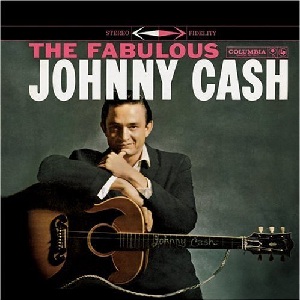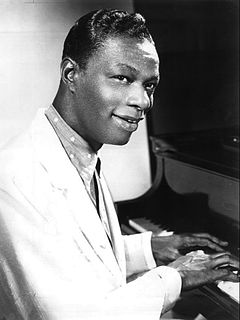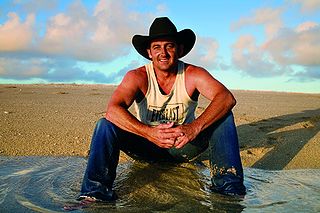The Grammy Award for Song of the Year is an honor presented at the Grammy Awards, a ceremony that was established in 1958 and originally called the Gramophone Awards. The Song of the Year award is one of the four most prestigious categories at the awards presented annually since the 1st Grammy Awards in 1959. According to the 54th Grammy Awards description guide, the award is presented:
to honor artistic achievement, technical proficiency and overall excellence in the recording industry, without regard to album sales or chart position.

The Isley Brothers are an American musical group originally from Cincinnati, Ohio, that started as a vocal trio consisting of brothers O'Kelly Isley Jr., Rudolph Isley and Ronald Isley. The group has been cited as having enjoyed one of the "longest, most influential, and most diverse careers in the pantheon of popular music".
The Grammy Award for Record of the Year is presented by the National Academy of Recording Arts and Sciences of the United States to "honor artistic achievement, technical proficiency and overall excellence in the recording industry, without regard to sales or chart position." The Record of the Year award is one of the four most prestigious categories at the awards presented annually since the 1st Grammy Awards in 1959. According to the 54th Grammy Awards description guide, the award is presented:
for commercially released singles or tracks of new vocal or instrumental recordings. Tracks from a previous year's album may be entered provided the track was not entered the previous year and provided the album did not win a Grammy. Award to the artist(s), producer(s), recording engineer(s) and/or mixer(s) if other than the artist.
The 1st Annual Grammy Awards were held on May 4, 1959. They recognized musical accomplishments by performers for the year 1958. Two separate ceremonies were held simultaneously on the same day; the first in The Beverly Hilton hotel in Beverly Hills, California, and the second in the Park Sheraton Hotel in New York City. Ella Fitzgerald & Ross Bagdasarian won most awards with 3 each, whereas Count Basie, Domenico Modugno, Henry Mancini, and each won 2 awards.
"The Wonder of You" is a song written by Baker Knight first released by Ray Peterson in 1959. Elvis Presley had a no. 1 hit in the UK and a Top 10 hit in the U.S. with his 1970 live version.

"Misty" is a jazz standard written in 1954 by pianist Erroll Garner. He composed it as an instrumental on the traditional 32-bar format and recorded it for the album Contrasts (1955). Lyrics were added later by Johnny Burke. It became the signature song of Johnny Mathis, appearing on his 1959 album Heavenly and reaching number 12 on the U.S. Pop Singles chart later that year. Country and pop singer Ray Stevens had a number 14 hit with his version of "Misty" in 1975 on the Billboard Hot 100. This version reached number two in the United Kingdom. The song has been recorded many times, including versions by Ella Fitzgerald, Aretha Franklin, Frank Sinatra, and Sarah Vaughan.
Yesterday or yesterdays may refer to:

The Fabulous Johnny Cash is the third studio album by American country singer, Johnny Cash. It was released on November 3, 1958 by Columbia Records, not long after Cash's departure from Sun Records, and was re-issued in 2002 by Sony Music's Legacy imprint. The re-issue contains six bonus tracks and unedited versions of the songs. Legacy Records reissued the album in 180 gram vinyl for Record Store Day in November 23, 2012.
Billboard Year-End charts are a cumulative measure of a single or album's performance in the United States, based upon the Billboard magazine charts during any given chart year. Billboard's "chart year" runs from the first Billboard "week" of December to the final week in November, but because the Billboard week is dated in advance of publication, the last calendar week for which sales are counted is usually the third week in November. This altered calendar allows for Billboard to calculate year-end charts and release them in time for its final print issue in the last week of December. Prior to incorporating chart data from Nielsen SoundScan, year-end charts were calculated by an inverse-point system based solely on a title's performance. Other factors including the total weeks a song spent on the chart and at its peak position were calculated into its year-end total. The same method was used for albums based on the Billboard 200, and songs appearing on the other charts.

"Kansas City" is a rhythm and blues song written by Jerry Leiber and Mike Stoller in 1952. First recorded by Little Willie Littlefield the same year, the song later became a #1 hit when it was recorded by Wilbert Harrison in 1959. "Kansas City" became one of Leiber and Stoller's "most recorded tunes, with more than three hundred versions," with several appearing in the R&B and pop record charts.

"The Battle of New Orleans" is a song written by Jimmy Driftwood. The song describes the Battle of New Orleans from the perspective of an American soldier; the song tells the tale of the battle with a light tone and provides a rather comical version of what actually happened at the battle. It has been recorded by many artists, but the singer most often associated with this song is Johnny Horton. His version scored number 1 on the Billboard Hot 100 in 1959. Billboard ranked it as the No. 1 song for 1959, it was very popular with teenagers in the late 50's/early 60's in an era mostly dominated by rock and roll music.

Greatest! is the fourth album by American singer-songwriter Johnny Cash, released on Sun Records on 12 January 1959. It was Cash's third record on the label, which he had left the previous year to join Columbia Records. By the time the album was released, Cash had already recorded The Fabulous Johnny Cash, his first album with Columbia. This overlap would continue until 1964 with Sun releasing additional albums and singles of previously unreleased material in parallel with Cash's Columbia releases.

"Sailing" is a 1980 soft rock song written and recorded by American artist Christopher Cross. It was released in June 1980 as the second single from his eponymous debut album (1979). The song was a success in the USA, reaching number one on the Billboard Hot 100 chart on August 30, 1980, where it stayed for one week. The song also won Grammy Awards for Record of the Year, Song of the Year, and Arrangement of the Year, and helped Cross win the Best New Artist award. VH1 named "Sailing" the most "softsational soft rock" song of all time.
Brent Mason is an American studio session guitarist and occasional songwriter. He is known primarily for his work in the field of country music. In addition to releasing two instrumental studio albums, he holds several credits as a songwriter. He is a Grammy Award winner (2008) and a two-time winner of the CMA Award Musician of the Year. He has released two albums and has produced a number of artists.
"Witchcraft" is a popular song from 1957 composed by Cy Coleman with lyrics by Carolyn Leigh. It was released as a single by Frank Sinatra, and reached number six in the U.S., spending sixteen weeks on the charts.

"Mona Lisa" is a popular song written by Ray Evans and Jay Livingston for the Paramount Pictures film Captain Carey, U.S.A. (1950).
The title and lyrics refer to the renaissance portrait Mona Lisa painted by Leonardo da Vinci.
The song won the Academy Award for Best Original Song in 1950.
"Peter Gunn" is the theme music composed by Henry Mancini for the television show of the same name. The song was the opening track on the original soundtrack album, The Music from Peter Gunn, released in 1959. Mancini won an Emmy Award and two Grammys for Album of the Year and Best Arrangement.
Rock with Neil Sedaka or just Neil Sedaka is the first major solo album of Neil Sedaka released in 1959 after two 1958 albums under the titles Neil Sedaka and The Tokens and Neil Sedaka and The Tokens and Coins. The album was released by RCA Victor and was produced by Al Nevins.
The album contains 12 songs, all of them co-written by Sedaka and his friend Howard Greenfield. Two of the songs became successful singles for Sedaka from the album, namely "The Diary", his debut single that was a hit, reaching No. 14 on the US Billboard charts, and "I Go Ape", a single that was relatively successful in the United States reaching No. 42, but did far better in the UK Singles Chart, making it up to No. 9 and his debut single in the United Kingdom.
"Tallahassee Lassie" is a song written by Bob Crewe, Frank Slay, and Frederick Picariello and performed by Freddy Cannon. It reached #6 on the U.S. pop chart, #13 on the U.S. R&B chart, and #17 on UK Singles Chart in 1959. The song was featured on his 1960 album The Explosive! Freddy Cannon.









